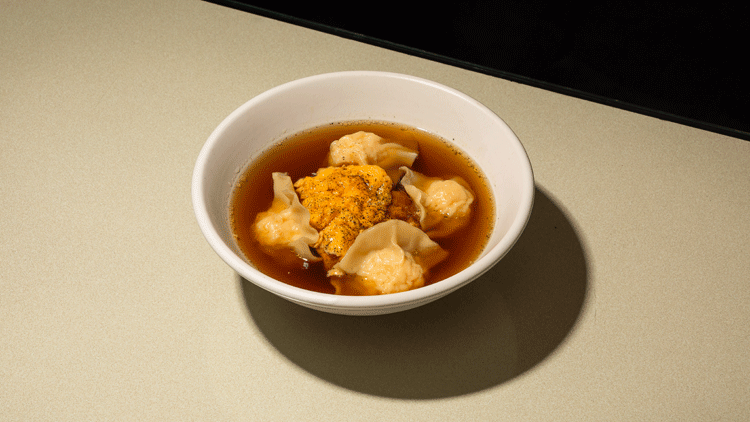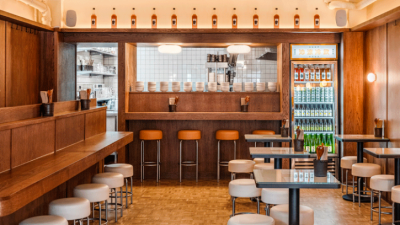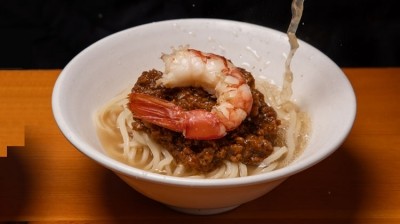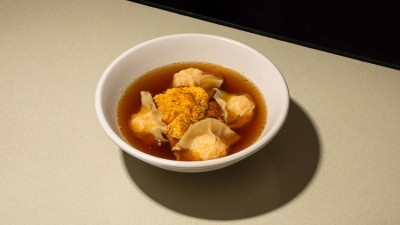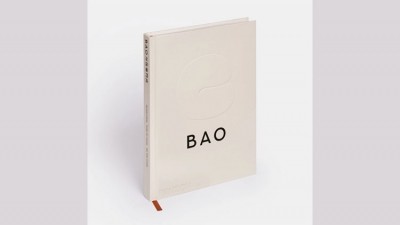Latest opening: BAO Mary
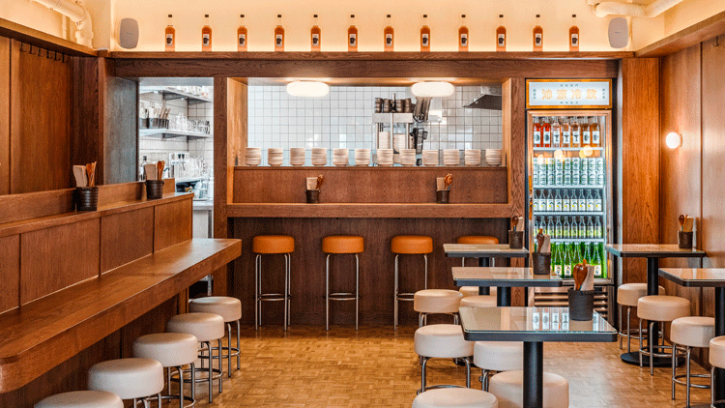
What: The latest restaurant from Taiwan-inspired restaurant group BAO. Just off Oxford Street on James Street - arguably Marylebone’s best pitch for casual places - BAO Mary is a take on a Taiwanese dumpling house that’s designed to appeal to shoppers that want good food quickly. The service is friendly but rapid, with cold dishes arriving moments after ordering from its dim sum-style menu. Set over two floors, it is the first BAO to offer all-day dining, opening its doors at noon and serving throughout the afternoon and evening seven days a week.
Who: BAO was founded by Erchen Chang, Wai Ting and Shing Tat Chung and is backed by JKS Restaurants, the group behind South Asian restaurants Gymkhana, Trishna, Brigadiers and Hoppers and the backer of a number of other London restaurants. BAO Mary brings the group up to a total of five locations joining sites in Soho, Kings Cross, Borough and Shoreditch.
The vibe: Sandwiched between Patty & Bun and BAO’s JKS Restaurants stablemate Hoppers, BAO Mary occupies the site that was once home to Sidechick. In common with the rest of the group’s sites, the restaurant has a well-judged utilitarian feel. Design details include wood panelling; softy lighting; ceiling fans; white stools; and low-slung pale green tables topped with glass with the drinks menu sandwiched in between. The ground floor features a semi-open kitchen to the rear and a counter that’s well-suited to solo diners while the basement is geared towards larger parties. In common with most of the restaurants on James Street, BAO Mary has a small outdoor trading space.
The food: The menu kicks off with a selection of cold dishes that include a salad of ox tongue and chilli oil; soy-braised vegetables; and sesame-flavoured Majiang noodles. The next section is dedicated to three dumpling dishes, including boiled cull yaw dumplings in sauce of chilli oil and vinegar; and a curious but delicious dish of prawn dumplings served in kelp broth topped with scrambled eggs (pictured above). A handful of more substantial dishes are then offered - including Taiwanese fried chicken and hot sauce and grilled beef rump with rice and cured egg yolk - before the menu moves on to bao.
To drink: BAO Mary has a small but perfectly formed drinks offer that includes three cocktails, peanut milk, various tea-based drinks and a selection of sake, Asia-sourced whisky, beer and wine.
And another thing: Competition in the bao space recently intensified, with US-based chef Eddie Haung bringing his Baohaus brand to the UK by way of a licensing agreement with Sessions.
Made in Taiwan: BAO retains its status as one of the sector’s most creative multi-site brands
BAO’s strategy of differentiating all of its locations continues to pay off. Each of the group’s five restaurants have different inspirations and identities and serve their own menu. Such an approach is rare in the multi-site space, especially when it comes to groups that are known for a single core product that is relatively easy to replicate (in this case the eponymous bao).
The Taiwanese steamed buns are available across the group but there is considerable variation elsewhere on the menu, with BAO Borough putting the emphasis on grilled dishes, BAO Kings Cross serving a menu inspired by Taiwanese tea houses and BAO Shoreditch specialising in noodle soup.
While it hasn’t been entirely plain sailing for the trio - their high-end Taiwanese restaurant Xu didn’t work out and BAO Fitzrovia closed late last year - they have marked themselves out by being determined to do things differently. Given the strength of its original bricks and mortar concept (opened in Soho in 2015) and its backers relatively deep pockets - BAO could have rolled out much faster than it has, but avoiding a cookie-cutter approach has helped the brand retain its cult status and design-led cool.
With a significant bricks and mortar presence in key London locatons, considerable flexibility on site selection (its existing places are all sorts of different shapes and sizes) and a expensive digital footprint - namely delivery service Rice Error by BAO, online supermarket Convni Store and seriously impressive interactive loyalty app BAOverse - BAO is ideally placed for further growth.
